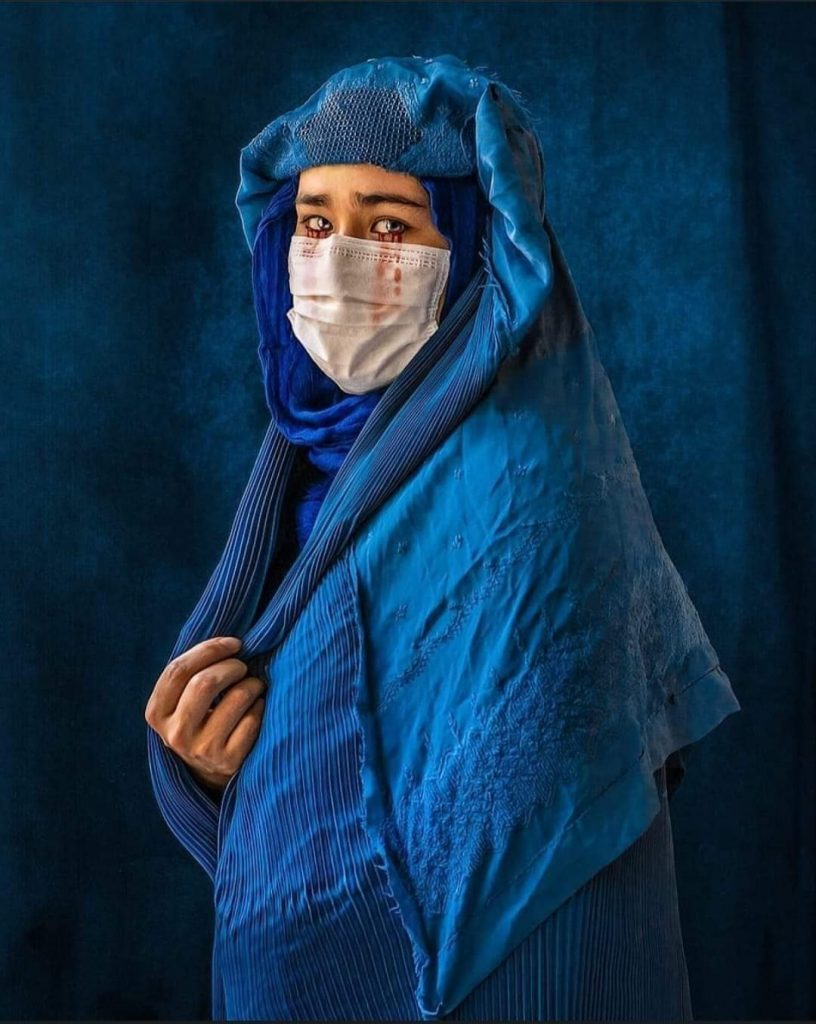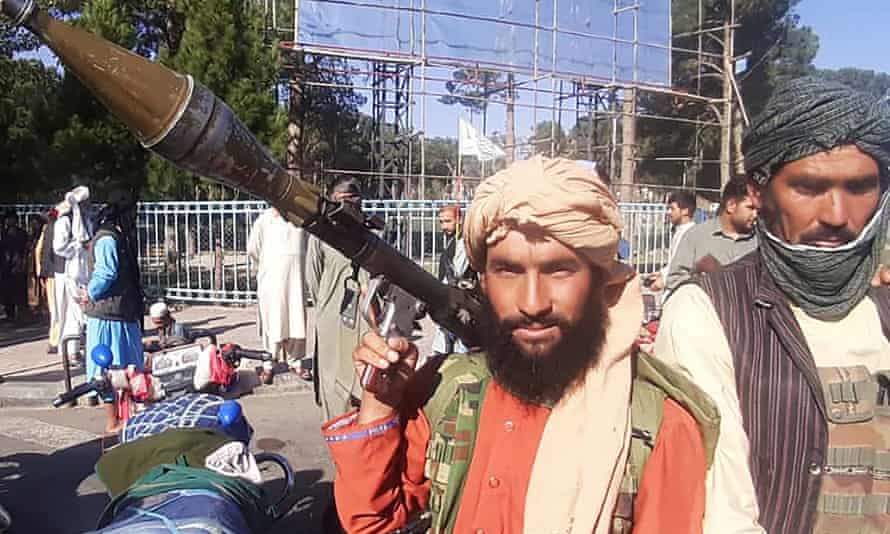The Failed US-Taliban Agreement, the Rise of Taliban with Terror Groups like Al Qaeda, Lashkar E Thoiba, Jamaat ud Dawa and more; Its effect on America, the Region and Afghan President in Exile

- A year and a half since U.S. special envoy Zalmay Khalilzad brokered a “peace agreement” between the United States and Taliban leaders, there is no peace in Afghanistan.
- The so-called Peace Process was a big flop as the Taliban used this as an instrument to talk to Americans and get support to regroup and get legitimacy.
Taliban has thrown out the Afghan Government and surprised the world by breaking all the established norms of the day and peace deals. A year and a half since U.S. special envoy Zalmay Khalilzad brokered a “peace agreement” between the United States and Taliban leaders, there is no peace in Afghanistan. On the one side talks were going on in Doha, on the other the Taliban was on an assault spree in Afghanistan. It was imposing Sharia and indulging in Human Rights Violations. UN Secretary-General Antonio Guterres called on the Taliban to immediately halt the offensive and asserted that seizing power through military force was a “losing proposition” and could only lead to a prolonged civil war and complete isolation of the war-torn nation. India and few more countries said they will and will not recognize a country coming to power with a medieval mind set full of non-state actors who are recognised as terrorists of the world.
Taliban is the confluence of Al Qaeada, Boko Haram, Abu Sayyid, Lashkar e Taiba, Jamaat ud Dawa, Hizb ul Mujahideen, Al Badr, and more. It was a big blunder that America credited them by talking and signing an agreement in early 2020. The agreement addressed four issues: reducing violence, withdrawing foreign troops, starting intra-Afghan negotiations, and guaranteeing Afghanistan won’t again become a refuge for terrorists. The United States agreed to reduce its number of troops If the Taliban follows through on its commitments, all U.S. and other foreign troops will leave Afghanistan within fourteen months.
The Taliban agreed to start talks with the Afghan government in March 2020. Throughout the negotiating process, the Taliban had resisted direct talks with the government, calling it an American puppet. Pakistan granted the Taliban safe haven and its Inter-Services Intelligence provided military expertise and assistance in fundraising. They also sent more than 20000 Soldiers among them many were terrorists. Experts say Pakistan now desires an Afghan government that includes the Taliban and is friendlier toward Islamabad. ISI Pakistan had three departments to help the Taliban to regain power.
New Delhi, a strong supporter of the Afghan government has spent $3 billion to develop infrastructure and cultivate business in Afghanistan since 2001. Its main goal was to prevent Afghanistan from becoming a safe haven for anti-India militants. The Indian government did not back U.S. efforts to reach an agreement with the Taliban and disagreed with legitimizing the group as a political actor. Taliban spokespersons have made themselves available to Indian media to convey that New Delhi’s military support to the Afghan government “is not acceptable”. The Taliban cautioned India against considering a military presence in Afghanistan. Taliban spokespersons Suhail Shaheen and Zabihullah Mujahid, however, appreciated India’s help in national projects and said its embassies and diplomats would not be harmed.
US Special Representative for Afghanistan Zalmay Khalilzad said the Biden Administration had prepared a nine-point plan after consulting China, Pakistan, the EU, the UK, Uzbekistan and Qatar. The proposal called for speeding up the peace process, reaching a political deal, permanent ceasefire, joint government and a mechanism for transferring power. Russian Special Envoy on Afghanistan Zamir Kabulov has also spoken on similar lines. Afghanistan President Ashraf Ghani met politicians, including those not aligned with him or the Taliban, and decided to form an authorised delegation for peace talks. The Taliban never responded to any of these overtures. Though America said they were withdrawing from Afghanistan, the sudden exit from Bagram Air Base shocked the world. Immediately Nato Forces too said they are going to exit with the slogan “Go Together and Exit Together from Afgahnistan” which made the Afghan government vulnerable. Within a 10 days the Afghan Government has fallen. The fall of Kabul has forced Afghan President to go in exile.

The so-called Peace Process was a big flop as the Taliban used this as an instrument to talk to Americans and get support to regroup and get legitimacy. Once they were convinced about the exit of America, they regrouped, re-organized and the onslaught started. America spent $2 Trillion Dollars in Afghanistan; Afghan defence forces had nearly 4 Lakh soldiers with best weapons, training and Military covers. But it remains a mystery as to why they could not take on a 70000-odd Taliban. America, which has the world’s best air force, could not prevent the fall of Afghanistan.
On ground observations and reliable evidence suggest that the Taliban have an efficient leadership and are learning from past mistakes. They have been quick to exploit the weaknesses of their adversaries. They are building a parallel administration, have nationwide logistics, and already manage an impressive intelligence network which is worrisome as they can use these techniques on other nations too.
Some experts and former diplomats say the time to have pushed for peace was years ago, when the U.S. had maximum leverage i.e right after American-led forces toppled the Taliban in 2001. Or when the U.S. had 100,000 troops on the ground during President Barack Obama’s troop surge more than 10 years ago. However Zalmay Mamozy Khalilzad an Afghan-American diplomat, who has served as the Special Representative for Afghanistan Reconciliation at the State Department maintains that the United States still has leverage over the Taliban because the terror group wants international recognition, and Washington and other major powers will insist that any future government upholds democratic rule and fundamental rights.
Taliban delegations recently paid visits to Russia, China and Iran, where they were given respectful receptions from senior officials. But Bilateral, Regional and Global neighbours of Afghanistan are shocked and worried of the developments as they do not know what will happen to small and medium countries in the future if non-state actors with outside support take over civilian governments.
(The views expressed are author’s own)
M.AM.PhiL/(PhD SNU South Korea)

Taliban is nothing but arm of Bajwa, with defacto control & directions from him,
It’s the Pakistan military & isi who provided all the required intelligence, training, equipments weapons, finances and also sent their military disguised as militants/taliban terrorists, only to unseat Ashraf Ghani and take control, so that it can dictate terms in the regions geopolitics and get what it’s waiting for long “The strategic Depth”, from now on whatever the terrorists acts & misadventures that taliban do, it will be at the best of Pakistan bajwa.
So it’s need of the hour to put Pakistan in “Black list of FATF” to reign and for regional peace & stability.
The neighbors of Afghanistan needs to come together in the form of a block/grouping and decide on the regional geopolitics and work constructively to reign taliban and cut Pakistan role in Afghanistan and work for the political stability at Afghanistan. As the neighbors are at receiving end of talibans acts of terrorism and is detrimental for growth, development, peace & stability of not afghan but region as whole.
The conspirator and bad biy in the region needs to be reigned “Pakistan “